#Military comparison
Explore tagged Tumblr posts
Text
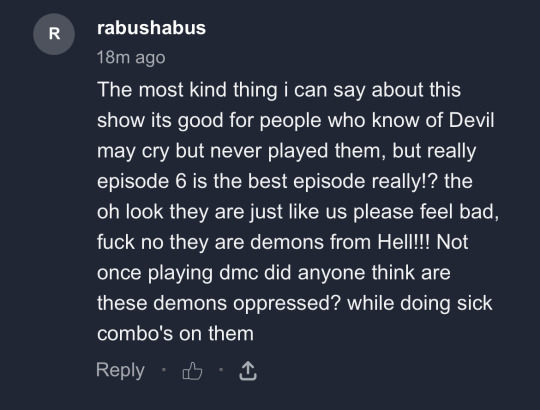
im sorry this made me laugh so f*cking hard i had to share it here too
#spoilers for dmc netflix anime#i jst watched Smvr speedrun Bloody Palace in cold sweat and u want me to be nice to Demons#i hope everyone starts making running jokes about being nice to demons while doing combos on them then#The show was great in terms of (kinda keeping them in character) but the alternate timeline was still kinda funky#enzo was funny as hell though i cant deny that#also the us military being able to overtake hell is stupid i forgot to include this#but its a good thing the plot isnt anywhere near connected to the the actual lore LMFAO#but I really think this show would be a shitty way to start dmc#devil may cry#id give it a 6/10#dmc#devil may cry 5#dmc 5#dante sparda#vergil sparda#incorrect dmc quotes#dmc memes#vergil dmc#dante dmc#devil may cry anime#devil may cry netflix#the anime’s a fucking joke#a good comparison to this would be like warhammer#why the fuck would you sympathize with heretics the whole fucking game is about killing heretics u fucking moron#sorry (that’s harsh) LMFAO#im only going to forgive adi shanker (im never forgiving adi shanker LMAO) is if he at least makes up some good ass backstory for#vergil and nero’s mom (how they meet and stuff) hopefully they explore that :3
496 notes
·
View notes
Text
genuinely curious how the writers and larger dragon age audience would treat thom rainier if instead of being appropriately* repentant and putting himself in prison he blew up a major orlesian government building to instigate a chevalier rebellion or tried to have someone do some necromantic blood magic ritual involving uncertain danger and possible sacrifices to bring the innocent children he ordered killed back to life
#*appropriately as in showing the expected amount of remorse in the appropriate way in a society founded on guilt and shame#i think blackwall actually tells us a lot about how dragon age's writers conceptualize justice and deservedness of punishment#im glad we get the option to forgive him but why do we get the option when anders is exiled at best?#and later characterized as a villain by dai#when solas is willfully imprisoned at best and trapped in a horrifying psychological torture chamber at worst?#blackwall gets a full redemption happy ending if inky so chooses#and im not saying he shouldnt#i forgive him every time#but its so interesting to me that narratively speaking#he seems to earn his happy ending through submission to punishment via imprisonment#as does solas but blackwall is portrayed far more sympathetically overall#there isnt the same meta-level narrative slander and clear agenda on behalf of the writing to make you feel a certain way about his crimes#as there is with anders and solas#why? whats the difference? what did he do to buy himself that narrative goodwill?#put himself in prison? why do the writers love carceral punishment so much lmfaooo#mine#if you wanna screenshot these tags and add them to the reblog feel free#im realizing i prob just shouldve put all of this in the post but its too late now#i think theres actually a strong argument that thom does not do nearly ENOUGH to right his wrongs#where is his effort to reform the orlesian military? where is his criticism of orlesian imperialism?#how does serving in the inquisition have a direct impact on the people he harmed? it doesnt#when you compare him to someone like roy mustang#yes im comparing him to roy mustang this is my blog and you are never going to escape roy mustang comparisons here#roy's political ambitions following his war crimes are directly related to those war crimes#and his goals directly benefit the same group of people he harmed#their ancestors and family members literally#meanwhile blackwall just kind of does vague “good” deeds and gets a full redemption#he really does not make much effort to repatriate the harm he did as a soldier#he just moves on#which again.... no shade to blackwall. my inky forgives him
297 notes
·
View notes
Text
The way the Canaries are structured is interesting when you think about the fact they basically consist of people deemed both useful and expendable to elf society. Most of them are prisoners on forbidden magic charges for any reason you can think of. The wardens are nobles' kids that more often than not are their least favorites (Mithrun being an exception thanks to his brother being physically unfit to take the job). They're formally called the Dungeon Investigation Unit, but widely referred to as Canaries on account of the fact they're basically a suicide squad and the apt description of Canaries in a coal mine when their boats' bows are marked with birds being right there. Like. There's a lot to be said about elf society given the fact that the people sent to be on the forefront of dangerous situations on behalf of the queen are all people considered to be disposable in one way or another.
#cath.txt#dunmeshi#people keep calling them cops which irks me on account of the fact most of them are prisoners who are sent to do the queen's bidding or die#trying. which is much more on par with being drafted into the military and even then it's not a perfect comparison.#when it comes to the wardens I'll listen but the prisoners that are forced to risk their lives or live out hundred year or more sentences.#fandom bitches when there's nuance & no 1:1 irl equivalent 😐#Pattadol#Mithrun#Flamela#canaries
152 notes
·
View notes
Text
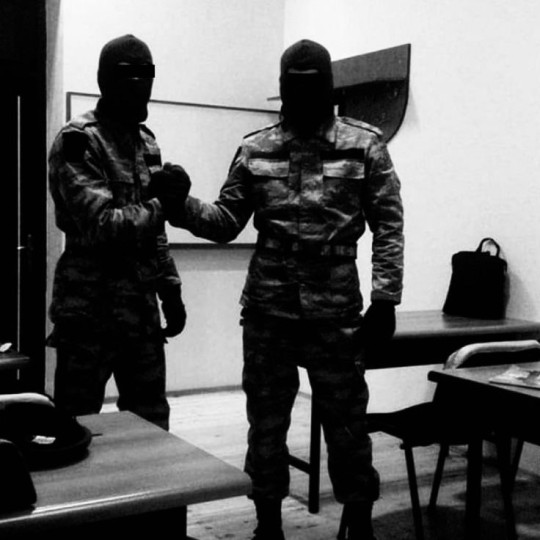
I want to get used by them Till i cry and theres a Pool underneath me from squirten AHHHG
#cnc sub#nswf post#bd/sm kink#cvm in me#cvm wh0re#cvmdump#cvmslvt#size comparison#abuse k1nk#bd/sm community#mask kink#masked men#military#bdsmplay#bdsmkink#r@pe k!nk#r@petoy#r@pe kink#r@pe play#r@pe fantasy#fvcktoy#kidnap fantasy#rough daddy#needy wh0re#cnc stalking#cnc kidnapping#cnc free use#rough smut#roughfuck#rough cnc
95 notes
·
View notes
Text

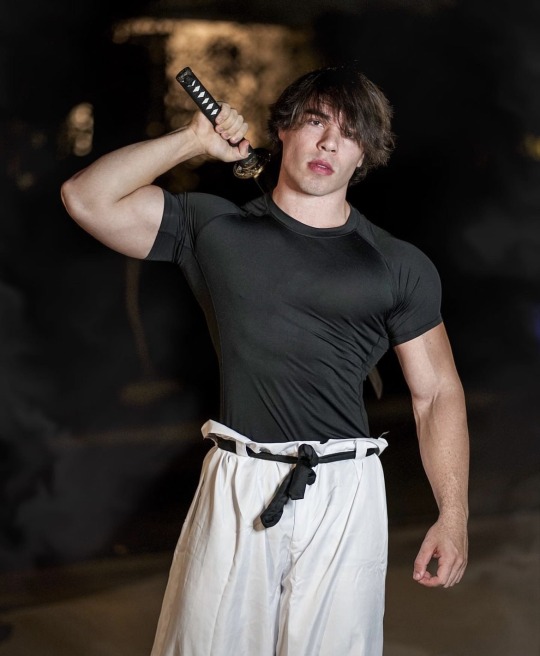







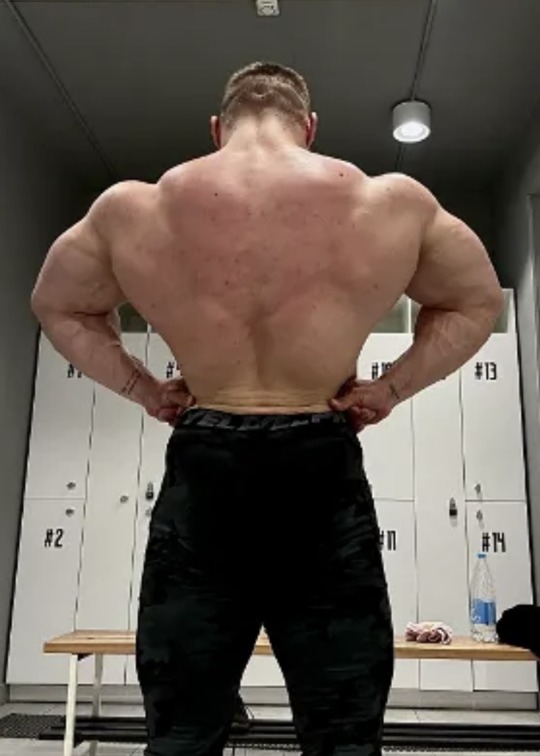
#muscle#bodybuilding#biceps#veins#military#ninja warrior#chase carlson#go big or go home#size comparison#size difference#motorcycle#beachday#rugby#rugby players#oldschool#backday
56 notes
·
View notes
Text
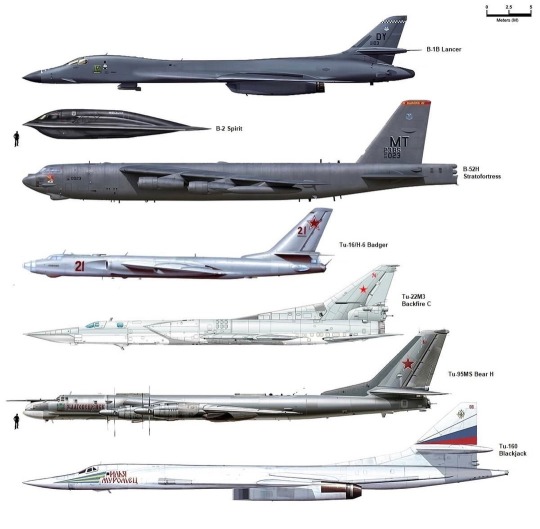
#aircraft#airplane#aviation#military#aviacion#world war ii#wwii#navy#helicopter#army#air force#comparison
22 notes
·
View notes
Text


#Made an oksana design bc y’all were so hyped over amber!#I know she’s supposed to have curly hair! It’s just in corn rows bc I thought the contrast between ambers wild hair#And her more orderly style really spoke to their comparison of the military/authority/chaperones v ambers freelance#Also if you thought amber was shredded oh boy is kodiera strong!#Also delicious height dofference#Lots of fun eyes snuck into her design#+ I thought it would be fun for Coda’s phantom eye to be more halo like#taz#the adventure zone#taz fanart#amber gris#taz ethersea#ethersea#oksana kodeira#ballister kodiera#Oksana#Ahh I know the sallow didn’t hit yet#Anyway I want oksana to have arm fins#Time to summon the woman lovers#something to nom on#oksamber
157 notes
·
View notes
Text
This isn't completely related to selfshipping but i unironically love making up shipnames for my s/i and the tf2 characters.
[also to note: some of these are not canon; pyro and scout are friends; and saxton hale is just kinda there. idk he's alright.]
Engineer x Morale: Radio Repair
Soldier x Morale: Roger That
Spy x Morale: Esprit de corps, Radio Drama
Medic x Morale: Herzschlag / Heartbeat
Demoman x Morale: Boombox
Sniper x Morale: Radio Silence, National Outback
Heavy x Morale: Tea and Jam
Scout x Morale: Skip Distance
Pyro x Morale: Smoke Signals
Miss Pauling x Morale: Two-way Radio
Saxton Hale x Morale: Mating Calls [this one is just dumb ignore]
Proships DNI
#if you are wondering: yes i've completely exhausted any possible communication term that personally sounded cool#{insert me becoming autistic over radios because of my s/i having a radio motif}#half of these have a radio / communications motifs on morale's end bc see above#also some explanations on the name bc why not:#radio repair is self-explanatory (engie solving practical problems and all)#roger that is slang in the military (but mostly in general) to say ' i understand ' and ofc that would remind me of him#the english word morale was originated from the french term espirit de corps (so of course)#i had so much trouble w/ medic until i remembered 'heartbeat' a few days ago and i facepalmed by how long it took me to figure that out#by comparison; boombox was the fastest and by far the easiest to think of (radio motif + boom)#radio silence was also self-explanatory#but the 2nd one references yosemite national park and the outback (since morale originates in mariposa and sniper lives in the bush)#i kinda want to do more w/ morale originating in mariposa bc that place is gorgeous#fun fact: adding jam (strawberry blackberry ect.) is a common addition for russian tea culture and i wanted to use my knowledge somehow#both miss pauling and morale would communicate via two-way radio or walkie-talkie (so that was a easy pick)#smoke signals because get it fire + a form of communication im a genius#skip distance is a distance a radio wave travels in and it usually includes a hop in the ionosphere (<- NERD)#tf2 oc#oc x canon#and thats it#💞📻#[just me yapping]
24 notes
·
View notes
Note
Why is BBC trying so hard to make the UNIT spinoff a thing? The majority of the Third Doctor's tenure was spent as an agent of UNIT, so we already know what they're like.
Shrug. Your guess is as good as mine. I assume its likely with a higher budget, BBC now wants to return to making spin offs and with a bigger audience now, they have hopes it'll do better then their last attempt, aka Class (which I have not watched so I'm not gonna say much beyond it's sadly known it didn't do well in comparison to Sarah Jane Adventures and Torchwood and ended on a fucking cliffhanger, aka a pain I am mood with given some shows I love ended like that too). And lets be real, Disney, whose helping with budget here, is gonna jump at any spin off, as evident by MCU and Star Wars never ending ones.
And since Sarah Jane Adventures and Torchwood were the ones who worked, being based on prior characters from Doctor Who, they going for that again, but this time on UNIT, something that admittely, some have been asking for....for some reason, I personally don't see the appeal, given Doctor Who has already made it clear nowadays UNIT is allowed to do whatever they want without being called out, including hiring child soldiers, let alone keep shoving prior companions and in the Bannerman Road gang's case, companions kids, into UNIT, because apparently that's the only way to have people dealing with aliens nowadays in Doctor Who if your not doing so in the TARDIS. Plus UNIT currently keeps appearing so much in Doctor Who, you don't even need to do a spin off in my opinion since they no longer only sometimes guest appear like they used to in New Who, but that's just me.
Granted, I do also disagree with what you said, the third era of Doctor Who UNIT were beyond different to current UNIT, as third doctor era UNIT were just chill and goofy soldiers doing their best and won't you know, doing half the shit New Who UNIT were shown doing and still do do but now without being called out. But I also just don't care to see a spin off on what UNIT is currently like because again, it's just gonna be lacking what New Who used to have with UNIT: allowing them to do fucked up actions but also allowing them to be called out....again in new episode, the doctor commenting bit young to someone who joined her military as a child is ironic, because he's fine with UNIT hiring two children and giving one of them weapons in his mobility aid. Plus it being on sea devils???? Meh, a spin off that's just focused on one alien issue in Doctor Who is just meh, Sarah Jane and Torchwood at least had a vareity of enemies to offer, plus given how UNIT handled the zygons, I doubt UNIT is gonna handle sea devils that well either.
#doctor who#dw spoilers#just in case as new episode detail mention#seriously to anyone reading this is my opinion#i just dont care for a unit spin off this point#doctor who has made it clear they just gonna be pro-military this point with anything unit#like the best comparison i got is in tenth era donna calling them out bagging a journalist#but in the giggle donna just doesnt say crap when unit does that again and neither does anyone else like this is fine and normal
4 notes
·
View notes
Note
First. I must say, thank you for being an ozpin apologist.
What makes you dislike the Academies so much? Other than maybe the age. Actually how does the system even work? I never cared much for the rwby side stuff (only recently watched the vid on the great war & a reading of The Infinite Man), so if it's mentioned there I wouldnt know. Is it just Combat School-> Huntsman Academy, or is there more to it?
I don't actually dislike the Academies, but a lot of people do. I see them as a neutral/morally gray sort of thing.
In general, how the Huntsman system works seems to be you start training from a young age and then you get into one of the four Academies. A lot of stuff on how it works isn't very clear? But Combat School isn't a requirement to get into the Academies (Jaune and Blake got into Beacon without going into Combat Schools), though it seems to be the most normal, possibly the safest way to train and get into the Academies.
I think an issue is how young people typically start training, which seems to be... 10-13 years old if I had to hazard a guess? Though this doesn't seem to be required either (Jaune got in with no training, and learned quickly, but this doesn't seem to be normal) I don't think, just the norm. It's also unclear if 17 years old is the required age to get into a Huntsman Academy, or if 17 is just the minimum required age with the occasional outlier (i.e. Ruby getting in at 15). I'd say it's more likely 17 is just the minimum required age, since it'd be kinda stupid to not allow people to join based on age lol.
Its also unclear to me if getting into the Huntsman Academies is the ONLY way to become a Hunter. Overall I'd say the Academies are comparable to college, with it being the norm to train from a young age and then get into one of the 4 Academies at 17 at the youngest.
The Academies, to me, also seem to be pretty safe for what they do. No required waivers to get in (waivers, iirc, being legal documents to keep an organization or person from being sued), lots of safety measurements (the cameras in the Emerald Forest and the likelihood of the teachers intervening during initiation and training missions), plus legal processes (Ozpin interviewing teams CVFY and RWBY individually for example, and iirc says that certain things have to happen and if things go wrong he and Glynda are held responsible, etc). It's definitely not foolproof, given the plotline of Hazel's sister, Gretchen, dying during a training mission, but these moments of things going wrong are treated as unusual.
In my opinion, the Academies are definitely necessary on paper. The actual system itself is flawed, and each Academy has their own separate issues given they work independently, but overall the Huntsman Academies aren't as evil as people make them out to be. People are going to have to learn to fight Grimm, considering they're an existential threat, and it was already common to learn how to fight them before; the Academies just centralize the learning and makes it safer to do so, and also offers the necessary resources to learn and make weapons. It's safe to assume that before it was learn to fight Grimm or die, for the most part.
The Academies also help to make non-huntsmen feel safer, since Hunters can also be hired help, and there's lots of Hunters being pumped out every year. People can be protected, or they can learn to fight, where that might not've been an option before.
The Academies DO have flaws, don't get me wrong, but I believe those flaws tend to be intrinsic to the kingdoms themselves rather than always being a flaw of the entire system itself. The episode that reveals Cinders backstory is criticizing Atlas itself, since Rhodes is, presumably, an Atlesian Huntsman and pressures her not to fight her literal slave owners (and this episode is in the Atlas arc, which basically repeats "Atlas fucking sucks" to you a billion different times). Not only that, but Atlas Academy is also pretty tied to the Atlas military, and also doesn't typically let faunus in. These are pretty uniquely Atlas issues, given the other kingdoms don't have militaries and the other kingdoms also let in faunus, including the very anti-faunus kingdom of Mistral.
So the Academies don't all share the same issues, which is pretty clear since Beacon is seemingly the most progressive of the Academies (though still deals with anti-faunus bullying, but Cardin and his team are the only examples and were only seen in v1, so we don't know how common that is either). The criticisms of the Academies are all very region-based so far, and that's the legitimate criticisms (I'm still not sure where people got the impression that students regularly die in the Academies, since there's nothing even implying that).
Basically my opinions of the Academies are that they're more or less necessary, though they do have problems that vary from Academy to Academy (forgot to mention- Shade seems very ableist and strength-based, which is a very Vacuo-unique issue that the other Academies don't deal with). I'd argue the biggest issues lie with the Combat Schools, given how young students start training, though the Combat Schools aren't required.
Otherwise, the Academies lie in a gray area. The people on Remnant don't live like we do; they're in a perpetually post-apocalyptic world with monsters as an existential and very real threat. Even if you don't have any Huntsman relatives, it's still very likely you've either lost someone to the Grimm, or know someone who did. They're a constant threat unless you live a very privileged life, and even then, they can still be a threat. Fighting is a very normal and necessary thing in the world of Remnant, and is pretty much baked into the world's cultures. Civilization being destroyed is a very real threat, and a constant one, and the population on Remnant is much lower than here, IRL. So something like the Academies are genuinely necessary there, whereas it wouldn't be here.
Its a very complicated and nuanced thing lol. People have a hard time really believing that the Academies lie in a gray area, rather than being completely 100% evil and unnecessary. They're very necessary, and have flaws. The only way you can believe they aren't necessary is if you think the Grimm are somehow secretly Not That Bad. Dunno, it's complicated lol.
#felix (host)#rwby#rwby rambles#rwby analysis#rwby meta#beacon academy#shade academy#fr tho the Academies are NOT as bad as ppl make em out to be#not all of them anyways#and the issues they do deal with are systemic#systemic problems are hard af to get rid of#and the Academies are at most like. 80 years old#at most!!#thats a really really short timeframe!#systemic issues don't just disappear like that#its more likely the Academies are like. 60-70 years old#again. short ass time frame#America has had longer to get rid of its own issues and we've only gotten worse tbh#and we don't have to deal with shit like the Grimm#so its not surprising the Academies still have issues esp when the kingdoms themselves still deal with those issues#its surprising how progressive Beacon is!#Vale as a whole is pretty progressive really#in comparison to other kingdoms at least#no thanks to Oz i don't doubt tbh#this IS the guy who singlehandedly abolished monarchies and militaries across the world#regardless it's still surprising Beacon/Vale is the one with the least amount of issues#given the timeframe#idk its just. gestures. ppl overestimate a lot#asks#melancholydonuts
6 notes
·
View notes
Text
I think I might need the mathematical resources of category theory to express the blorbo thoughts I'm having right now
#webs of parallels between team dynamics#I need arrows to represent the dynamics between each team and also to represent the connections between different dynamics#like the kirk-spock-mccoy/aubrey-maturin parallels#but also kirk-spock leads to blake-avon (through a distorting funhouse mirror)#& I was reading this other military sci-fi book (With the Lightnings) with two protagonists#that is very obviously based on the aubrey-maturin relationship but like in a different direction#& I'm pretty convinced that blake-avon is not unrelated to breq-seivarden but idk if leckie is directly influenced by b7 or#if it's through other (sff?) media that I don't even know#but also fandom is my space to make completely acausal comparisons.#if I were doing this for work I'd have to prove influence was actually possible. this is where I can just line up my toys#without concern for actual literary-historical relevance#(hi ms leckie if you see this have you seen blake's 7. if not I think you would like it)
15 notes
·
View notes
Text

day 239/548 of jungkook's military service
this picture was posted on 170702 with the caption:
017 #BTS LIVE TRILOGY EPISODE III THE WINGS TOUR ~Japan Edition~ Last day in Sapporo! This is also the last day of the fan club exclusive event booths. JUNG KOOK's handwriting is written on each card☺ Thank you for your hard work everyone👍 #BTS
(trans cr: Jackie @ bts-trans)
#i know i know that's not a selfie#you gotta understand that jk never fucking posted any though (in comparison to the other boys)#so i gotta do what i gotta do to make this countdown last til the end of his service kajzfgkerh#jungkook#jungkook military countdown#170702
7 notes
·
View notes
Text
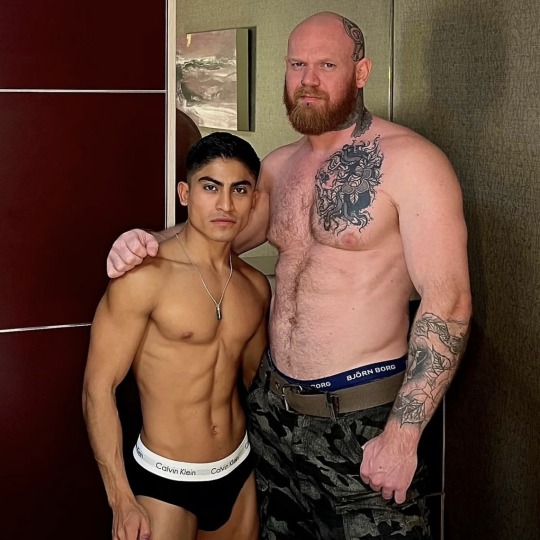
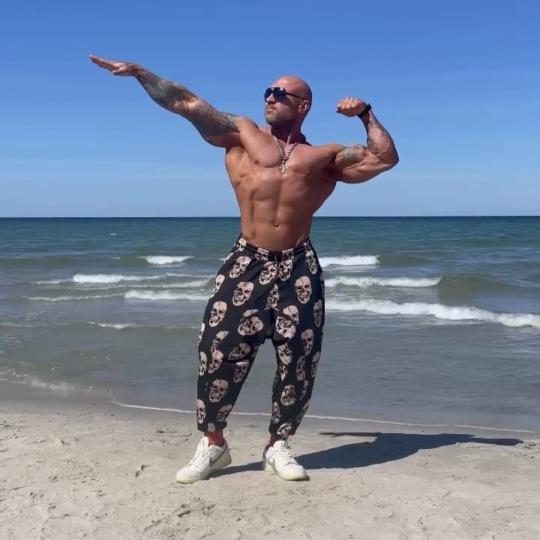
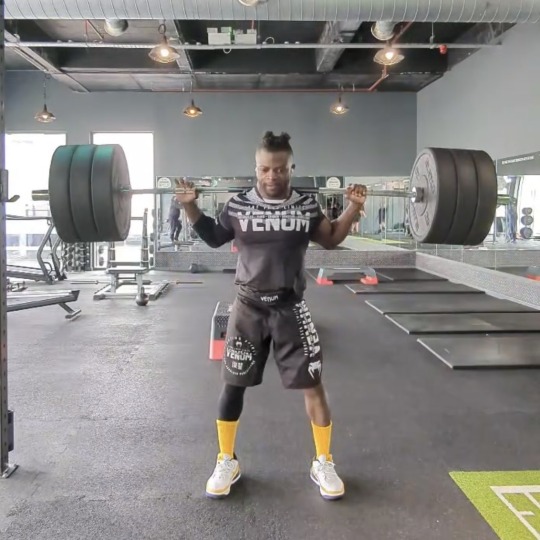

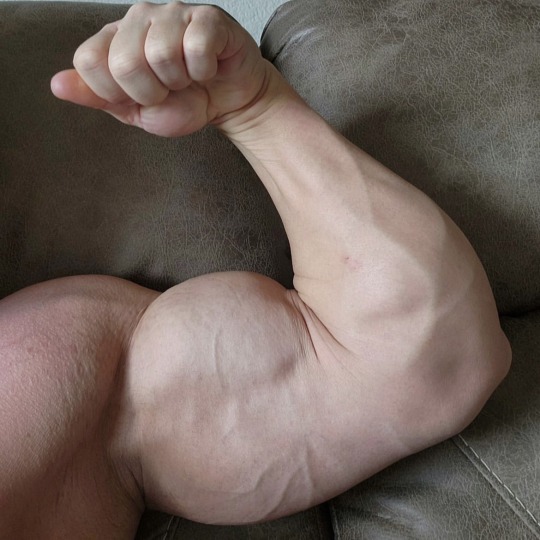
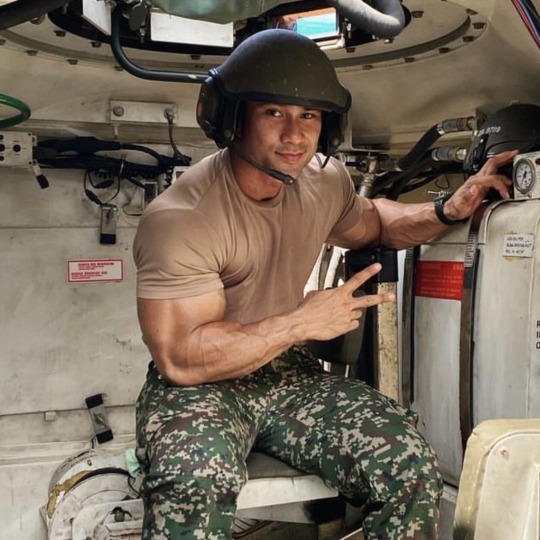
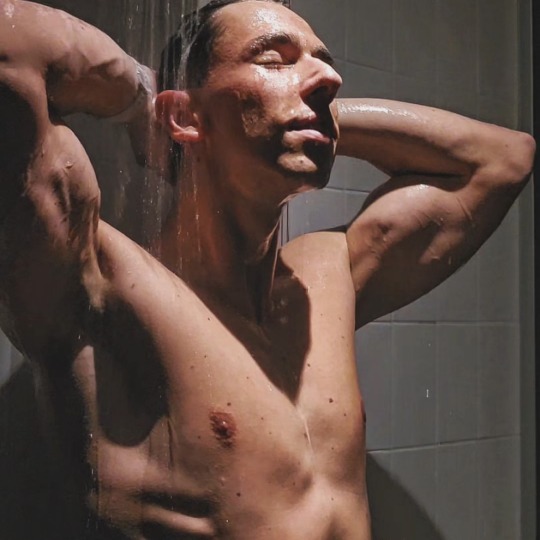

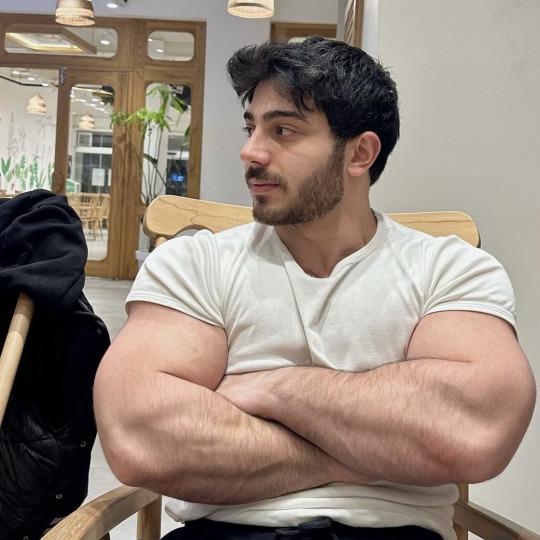
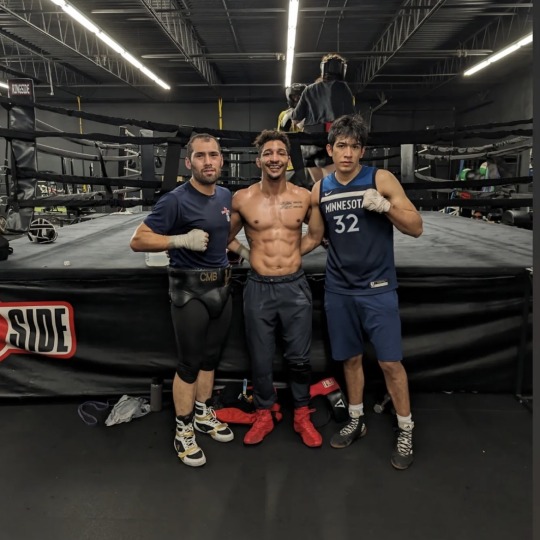
#muscle#bodybuilding#biceps#wrestling#veins#wrestler#bjj#military#jiujitsu#size comparison#leg day#beach muscle#mma
35 notes
·
View notes
Text
I love writing smut but damn it’s hard to find a good word other than semen that’s time period accurate without sounding like a medical text book
#truly the biggest struggle smh#also I was in a program when I was younger and semen just reminds me of it and it makes me cringe#I heard the joke too much from the other branches#it’s like a sleeper agent trigger word and that comparison just made it worst since it had to do with the military#iykyk#okay enough rambling time to try and figure out a better word than spunk#don’t be surprised if I just use seed#I’m a fantasy writer at heart after all
3 notes
·
View notes
Text
In the end, politics was an accretion of personal decisions, and that means that the personality of the protagonists cannot be left out of the discussion. It determined not only how they reacted to the situations in which they found themselves, but how others reacted to them. The growing support for Edward IV in 1461 must have owed something to the realisation that he would make an effective king - whereas his father never seems to have been regarded in that light.
— Rosemary Horrox, "Personalities and Politics", The Wars of the Roses (Problems in Focus), Edited by A.J Pollard
When the worst had happened, and civil war was a reality, the overwhelming imperative was to find some way of restoring order. At the level of high politics, what this entailed in practice was a rallying around the de facto king. The Wars of the Roses, far from weakening the monarchy, actually strengthened it, since the king was the only man able to surmount faction. In spite of [Henry VI’s] manifest failings, Richard, duke of York's criticism of the regime commanded little high-level support - and would have commanded even less but for the crown's alienation of the junior branch of the Nevilles, headed by York's brother-in-law the earl of Salisbury. York in fact never did attain the political viability to break the vicious circle of temporary ascendancy and political exclusion. It was his son, Edward, earl of March, who finally mustered enough support to take the throne. He was able to do so in part because the situation had been transformed by the country's descent into open war, which reduced the compulsion to uphold the king as the embodiment of stability. Once it was no longer a matter of averting war, but of stopping it, political opinion began to divide more evenly between Henry VI and his rival. However, the crucial change may well have been York's own death at the Battle of Wakefield late in 1460. In the ensuing months Edward of York was able to present himself as the man who could mend the shattered political community. That self-identification with unity proved immensely potent, and it was not a role which could plausibly have been filled by his father. In the eyes of contemporaries, York had been the begetter of faction: a man tainted by his willingness to go to extremes.
#oof💀#I can't decide if this is more awkward or ironic#But it's nevertheless VERY interesting#Edward IV#Richard Duke of York#my post#wars of the roses#Edward still had to win Towton (ie: a military victory) to actually secure his kingship and bring over a lot of the nobility to his side#But this point is nonetheless very true - not just for his road to victory but also for the image he cultivated after he had won#It's very common to hear about how Edward IV was eventually viewed by many as a 'better' alternate to the throne than Henry VI#But what isn't acknowledged nearly as much is how by that logic he would've equally been viewed as a better alternate than his father#Ironically this entire point is made even clearer by the actions of York's own staunchest supporters ie the Nevilles#Certainly both Edward & Warwick learned their lesson from York's disastrous attempt at an acclamation in 1460#Considering how comparatively well-planned and well-executed Edward's own acclamation was in comparison#This is another reason I dislike how the Yorkists are often viewed and spoken of as a collective. the broader dynastic label tends to#minimize the differences in certain situations like this one or Richard's usurpation
25 notes
·
View notes
Text
On May 28, 1914, the Institut für Schiffs-und Tropenkrankheiten (Institute for Maritime and Tropical Diseases, ISTK) in Hamburg began operations in a complex of new brick buildings on the bank of the Elb. The buildings were designed by Fritz Schumacher, who had become the Head of Hamburg’s building department (Leiter des Hochbauamtes) in 1909 after a “flood of architectural projects” accumulated following the industrialization of the harbor in the 1880s and the “new housing and working conditions” that followed. The ISTK was one of these projects, connected to the port by its [...] mission: to research and heal tropical illnesses; [...] to support the Hamburg Port [...]; and to support endeavors of the German Empire overseas.
First established in 1900 by Bernhard Nocht, chief of the Port Medical Service, the ISTK originally operated out of an existing building, but by 1909, when the Hamburg Colonial Institute became its parent organization (and Schumacher was hired by the Hamburg Senate), the operations of the ISTK had outgrown [...]. [I]ts commission by the city was an opportunity for Schumacher to show how he could contribute to guiding the city’s economic and architectural growth in tandem, and for Nocht, an opportunity to establish an unprecedented spatial paradigm for the field of Tropical Medicine that anchored the new frontier of science in the German Empire. [...]
[There was a] shared drive to contribute to the [...] wealth of Hamburg within the context of its expanding global network [...]. [E]ach discipline [...] architecture and medicine were participating in a shared [...] discursive operation. [...]
---
The brick used on the ISTK façades was key to Schumacher’s larger Städtebau plan for Hamburg, which envisioned the city as a vehicle for a “harmonious” synthesis between aesthetics and economy. [...] For Schumacher, brick [was significantly preferable] [...]. Used by [...] Hamburg architects [over the past few decades], who acquired their penchant for neo-gothic brickwork at the Hanover school, brick had both a historical presence and aesthetic pedigree in Hamburg [...]. [T]his material had already been used in Die Speicherstadt, a warehouse district in Hamburg where unequal social conditions had only grown more exacerbated [...]. Die Speicherstadt was constructed in three phases [beginning] in 1883 [...]. By serving the port, the warehouses facilitated the expansion and security of Hamburg’s wealth. [...] Yet the collective profits accrued to the city by these buildings [...] did not increase economic prosperity and social equity for all. [...] [A] residential area for harbor workers was demolished to make way for the warehouses. After the contract for the port expansion was negotiated in 1881, over 20,000 people were pushed out of their homes and into adjacent areas of the city, which soon became overcrowded [...]. In turn, these [...] areas of the city [...] were the worst hit by the Hamburg cholera epidemic of 1892, the most devastating in Europe that year. The 1892 cholera epidemic [...] articulated the growing inability of the Hamburg Senate, comprising the city’s elite, to manage class relationships [...] [in such] a city that was explicitly run by and for the merchant class [...].
In Hamburg, the response to such an ugly disease of the masses was the enforcement of quarantine methods that pushed the working class into the suburbs, isolated immigrants on an island, and separated the sick according to racial identity.
In partnership with the German Empire, Hamburg established new hygiene institutions in the city, including the Port Medical Service (a progenitor of the ISTK). [...] [T]he discourse of [creating the school for tropical medicine] centered around city building and nation building, brick by brick, mark by mark.
---
Just as the exterior condition of the building was, for Schumacher, part of a much larger plan for the city, the program of the building and its interior were part of the German Empire and Tropical Medicine’s much larger interest in controlling the health and wealth of its nation and colonies. [...]
Yet the establishment of the ISTK marked a critical shift in medical thinking [...]. And while the ISTK was not the only institution in Europe to form around the conception and perceived threat of tropical diseases, it was the first to build a facility specifically to support their “exploration and combat” in lockstep, as Nocht described it.
The field of Tropical Medicine had been established in Germany by the very same journal Nocht published his overview of the ISTK. The Archiv für Schiffs- und Tropen-Hygiene unter besonderer Berücksichtigung der Pathologie und Therapie was first published in 1897, the same year that the German Empire claimed Kiaochow (northeast China) and about two years after it claimed Southwest Africa (Namibia), Cameroon, Togo, East Africa (Tanzania, Burundi, Rwanda), New Guinea (today the northern part of Papua New Guinea), and the Marshall Islands; two years later, it would also claim the Caroline Islands, Palau, Mariana Islands (today Micronesia), and Samoa (today Western Samoa).
---
The inaugural journal [...] marked a paradigm shift [...]. In his opening letter, the editor stated that the aim of Tropical Medicine is to “provide the white race with a home in the tropics.” [...]
As part of the institute’s agenda to support the expansion of the Empire through teaching and development [...], members of the ISTK contributed to the Deutsches Kolonial Lexikon, a three-volume series completed in 1914 (in the same year as the new ISTK buildings) and published in 1920. The three volumes contained maps of the colonies coded to show the areas that were considered “healthy” for Europeans, along with recommended building guidelines for hospitals in the tropics. [...] "Natives" were given separate facilities [...]. The hospital at the ISTK was similarly divided according to identity. An essentializing belief in “intrinsic factors” determined by skin color, constitutive to Tropical Medicine, materialized in the building’s circulation. Potential patients were assessed in the main building to determine their next destination in the hospital. A room labeled “Farbige” (colored) - visible in both Nocht and Schumacher’s publications - shows that the hospital segregated people of color from whites. [...]
---
Despite belonging to two different disciplines [medicine and architecture], both Nocht and Schumacher’s publications articulate an understanding of health [...] that is linked to concepts of identity separating white upper-class German Europeans from others. [In] Hamburg [...] recent growth of the shipping industry and overt engagement of the German Empire in colonialism brought even more distant global connections to its port. For Schumacher, Hamburg’s presence in a global network meant it needed to strengthen its local identity and economy [by purposefully seeking to showcase "traditional" northern German neo-gothic brickwork while elevating local brick industry] lest it grow too far from its roots. In the case of Tropical Medicine at the ISTK, the “tropics” seemed to act as a foil for the European identity - a constructed category through which the European identity could redescribe itself by exclusion [...].
What it meant to be sick or healthy was taken up by both medicine and architecture - [...] neither in a vacuum.
---
All text above by: Carrie Bly. "Mediums of Medicine: The Institute for Maritime and Tropical Diseases in Hamburg". Sick Architecture series published by e-flux Architecture. November 2020. [Bold emphasis and some paragraph breaks/contractions added by me. Text within brackets added by me for clarity. Presented here for commentary, teaching, criticism purposes.]
#abolition#ecology#sorry i know its long ive been looking at this in my drafts for a long long time trying to condense#but its such a rich comparison that i didnt wanna lessen the impact of blys work here#bly in 2022 did dissertation defense in architecture history and theory on political economy of steel in US in 20s and 30#add this to our conversations about brazilian eugenics in 1930s explicitly conflating hygiene modernist architecture and white supremacy#and british tropical medicine establishment in colonial india#and US sanitation and antimosquito campaigns in 1910s panama using jim crow laws and segregation and forcibly testing local women#see chakrabartis work on tropical medicine and empire in south asia and fahim amirs cloudy swords#and greg mitmans work on connections between#US tropical medicine schools and fruit plantations in central america and US military occupation of philippines and rubber in west africa#multispecies#imperial#indigenous#colonial#landscape#temporal#see also us mosquito campaigns in panama and british urban planning in west africa and rohan deb roy work on india bengal entomology#ecologies#bugs#tidalectics#archipelagic thinking#plantations#intimacies of four continents#carceral geography#black methodologies#indigenous pedagogies
14 notes
·
View notes